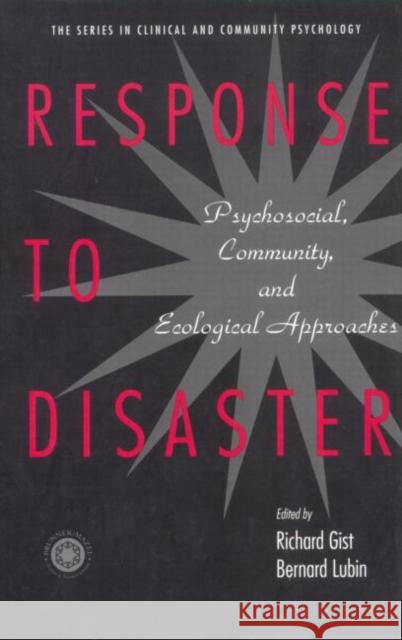Response to Disaster: Psychosocial, Community, and Ecological Approaches » książka
topmenu
Response to Disaster: Psychosocial, Community, and Ecological Approaches
ISBN-13: 9780876309995 / Angielski / Miękka / 1999 / 384 str.
Response to Disaster: Psychosocial, Community, and Ecological Approaches
ISBN-13: 9780876309995 / Angielski / Miękka / 1999 / 384 str.
cena 234,09
(netto: 222,94 VAT: 5%)
Najniższa cena z 30 dni: 216,55
(netto: 222,94 VAT: 5%)
Najniższa cena z 30 dni: 216,55
Termin realizacji zamówienia:
ok. 16-18 dni roboczych.
ok. 16-18 dni roboczych.
Darmowa dostawa!
First published in 2000. Routledge is an imprint of Taylor & Francis, an informa company.











